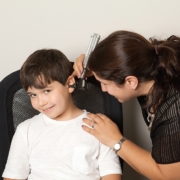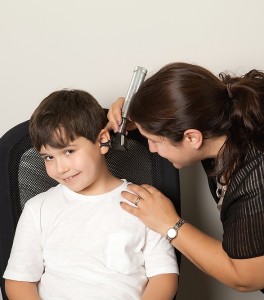Back to School: Hearing Loss and Online Learning
Due to the on-going pandemic, “Back to School” is going to be considerably different this year for both students and their families. Many students will be participating in online learning, and for those who are hard of hearing, online learning comes with an additional set of challenges.
Audio can become distorted as it passes from the speaker through the computer and out to the listener, making it harder to understand. As well, if the speaker is far away from the video camera, or not facing the camera directly, the student will not be able to see their face to speech-read. And if there is any background noise from other students through their microphones, it will greatly affect the clarity of the person speaking.
Students, and especially all of our hard-working school teachers are going to be exceptionally busy this year attending to their education through multiple modes of learning. Here are some tips and tricks for both students and teachers to utilize online to help create a better learning experience!
-
-
- Recording Classes
-
Recording each class would be very helpful. If a student misses a word or sentence during the class, they can go back and review the lesson afterward, allowing them to catch what they might have missed.
-
-
- Wearing a Microphone
-
The teacher can utilize a high-quality headset to capture audio while they teach their lesson. It would help amplify speech and improve clarity to reduce the listening strain for the student.
-
-
- Visual materials
-
Having visual materials to refer to are very important. Having a hard copy or print out of the lesson to refer to during and after the class would be beneficial, especially for hard of hearing students.
-
-
- Take turns
-
This is an obvious one, but making sure only one person is talking at a time during the lesson is essential. If multiple people are speaking, it is almost impossible to understand what anyone is saying during video conferencing. Additionally, making sure everyone’s microphones are off when it is not their turn to speak is very important in order to reduce distracting background noise.
-
-
- Using assistive listening devices
-
For those students wearing hearing aids, there are assistive listening devices that work in conjunction to help with direct streaming of audio from the computer directly to the hearing aids. Using FM technology or bluetooth streaming will allow the student to hear the audio straight from the computer, limiting potential distortion from the computer speaker as well as reducing the effects of distance from the speaker and having to filter the sound through potential background noise in their environment.
Lastly, this has been stated before on this blog, but it is important for students to remember: do not be afraid to ask for what you need. If you are having difficulty hearing your teacher or are missing parts of the lesson, make sure to let them know. Inform them which communication strategies work best for you, and ask for any additional teaching materials you might require.
We at Salus Hearing Centre wish everyone heading back to school a safe, educational and enjoyable school year.
[bottomspaces]





